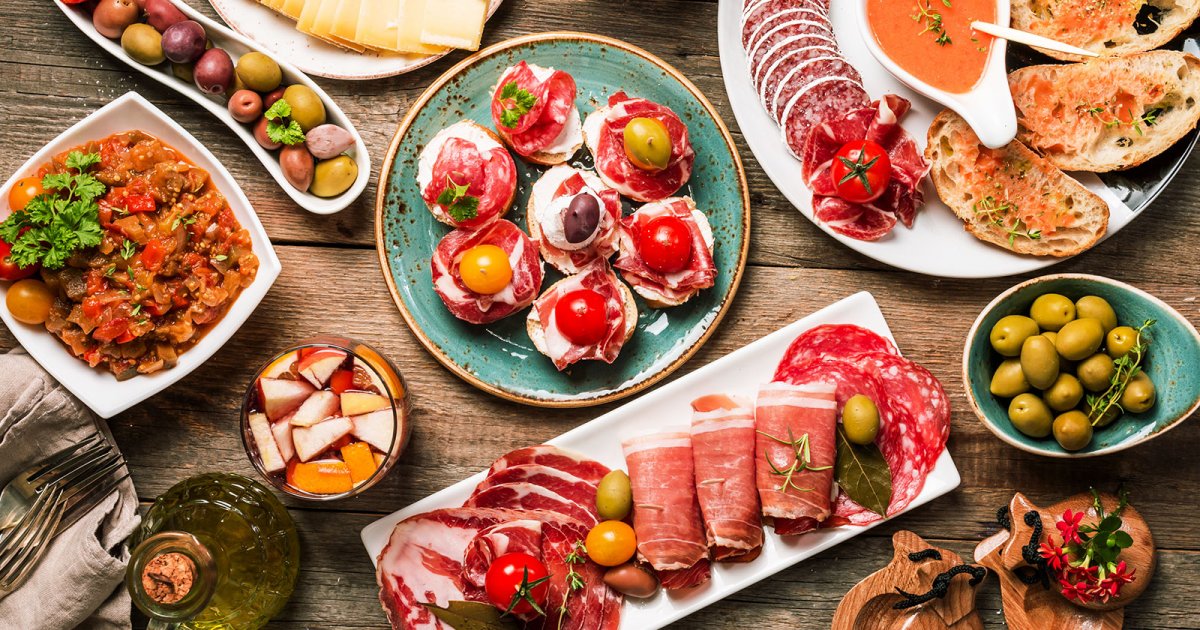THE WONDERS OF LOCAL CUISINE, The Wonders Of Local Cuisine
 Language: English / USA
Language: English / USA
Hi, my name’s James, and I’m your personal guide. Along with MyWoWo, I’d like to welcome you to the wonderful flavors of Madrid.
People have moved to Madrid from all over Spain since the 17th century, so the city has absorbed a variety of regional cooking traditions, while maintaining its own, so there are numerous typical dishes for you to try.
You might like to sample gazpacho, the famous chilled tomato soup you may have seen in Almodovar’s films, or a slice or two of jamon, the ham so popular that every Spaniard is said to have one hanging in their kitchen.
The most prestigious variety is jamon serrano, which comes from an area near the border, from pigs fed with a particular type of acorns.
You can try it in numerous restaurants and bars, where you’ll find it among the tapas, the snacks served with an aperitif that are an essential feature of life in Madrid.
Tapas range from salamis to coques, a type of pizza with various toppings, as well as snails with vegetables or slices of tortilla, a thick omelet, most commonly made with potatoes.
In Madrid you’ll also find some excellent paella, the world-famous rice dish made with meat, fish and mollusks, originally from Valencia.
The many traditional Spanish dishes you can enjoy include sopa de ajo, a soup made simply with bread, garlic, oil and paprika; gallinejas en embajadores, hot, crisp fried lamb’s entrails, or fabada asturiana, a soup made with beans, sausage and ham.
A specialty typical of Madrid itself is cocido, made with a selection of boiled meats served with plenty of vegetables and pulses: it is a complete meal, because the stock is served first, followed by the vegetables and lastly the meat.
Another typical dish is huevos estrellados, or smashed eggs: fried eggs with potatoes and jamon serrano.
As for the delicious sweet specialties, make sure you try churros y chocolate, long sticks of fried pastry for dipping in hot chocolate, or the rosquillas de San Isidro, doughnuts prepared for the feast day of Saint Isidro, the city’s patron saint.
An interesting fact: the locals traditionally eat the rosquillas only after kissing the relics and drinking the holy water from the saint’s fountain, but you can try them without all this....
What else can I say but…enjoy!



